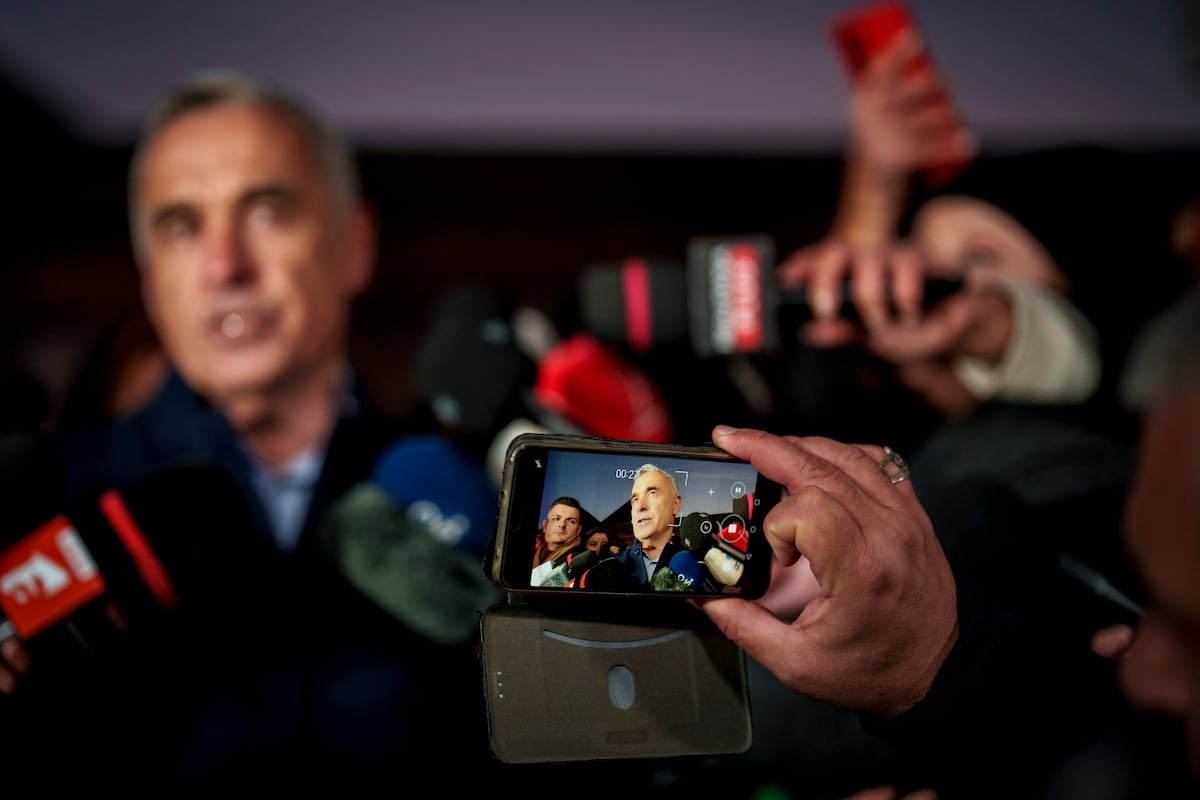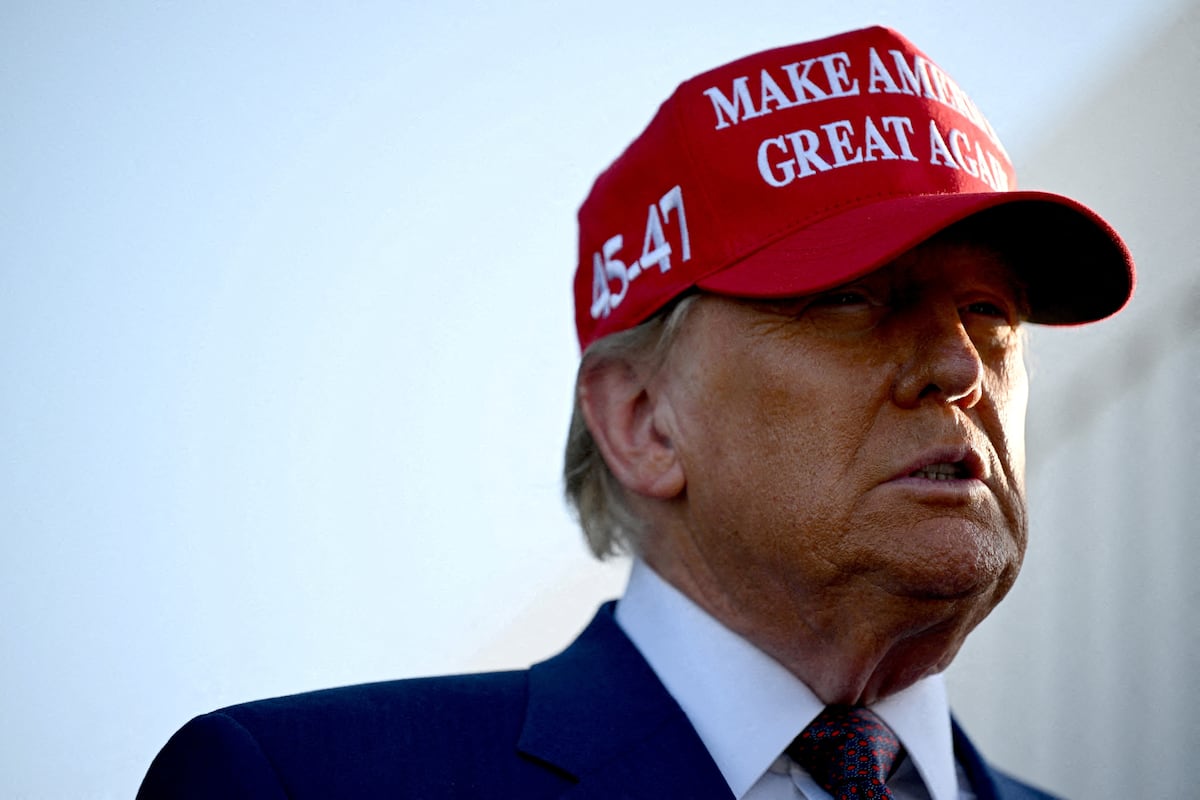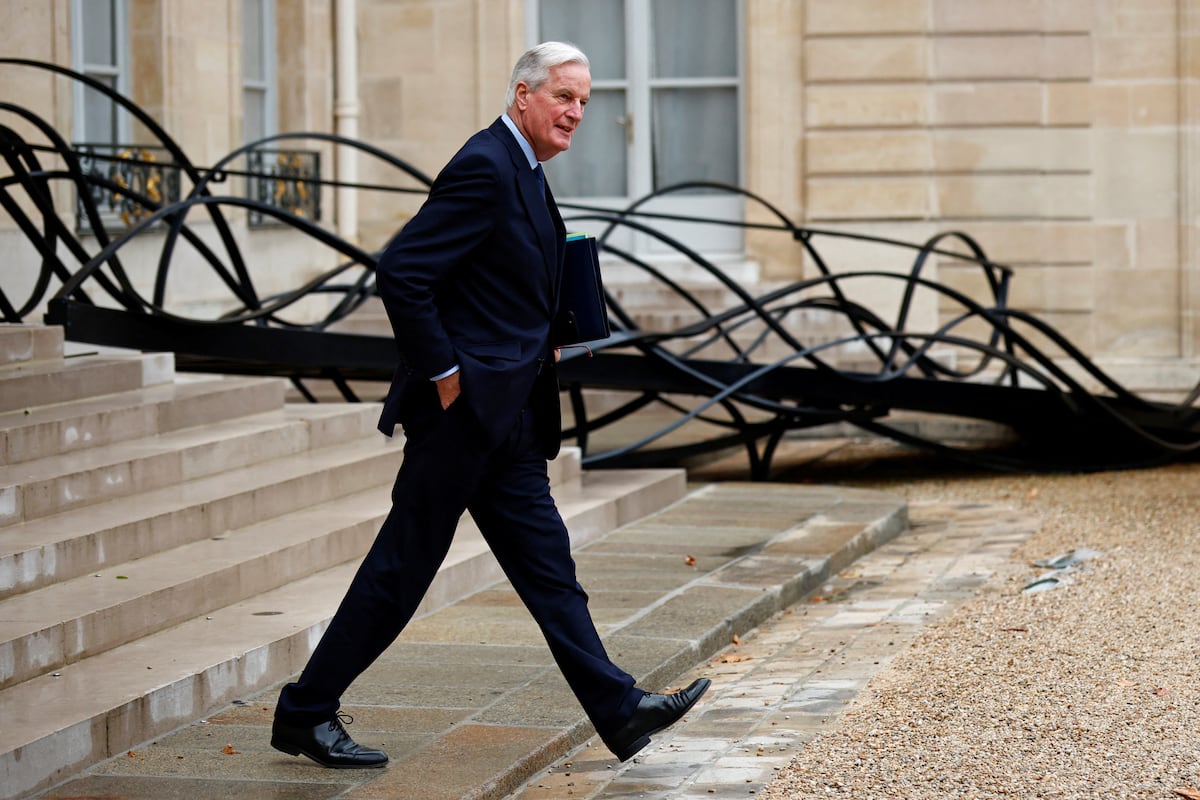Romanians have turned off the general television channels and have turned to social networks. This phenomenon has been one of the drivers of the victory in the first round of the presidential elections last Sunday of the ultranationalist and pro-Russian candidate Calin Georgescu, whose campaign was developed mainly on TikTok, where he has 360,000 followers. Since the fall of communism almost 35 years ago, channels dedicated 24 hours to news and inane debates have proliferated to number at least six today in a country of 19 million inhabitants, the sixth largest in the European Union.
Flooded with mostly negative news, citizens already turned towards other information platforms ten years ago, when hundreds of thousands of people turned to publishing on Facebook to mobilize voters in favor of the outgoing president, the liberal Klaus Iohannis, who was supposedly going to champion the fight against corruption. However, the vagaries of Iohannis, current head of state and whose popularity collapsed three years ago when he accepted a government in coalition with the Social Democrats, have disappointed a large part of society, tired of unfulfilled promises and seeing how the increase Inflation has caused a sharp rise in food and energy prices. In addition to making it difficult to access housing and increasing poverty – one in five Romanians is at risk of exclusion.
Last Sunday, the attention of Romanians shifted again to the networks, specifically to TikTok, a Chinese platform that barely has filters on the videos that are posted and that has promoted the candidate Georgescu, who presents himself as an anti-system. Former president Traian Basescu (2004-2014) considers that, if he wins the second round on December 8, this would be a “president supported by robots, through messages manufactured by artificial intelligence.” “It is inadmissible that Romania can elect a president without seeing him or knowing him,” he said.
In this climate of concern, the National Audiovisual Council on Tuesday asked the European Commission to open an investigation into TikTok for “suspicion of manipulation of public opinion through inappropriate use of the platform and lack of transparency in the management of political content.” “, announced Valentin Jucan, vice president of the organization that defends citizens from infractions committed by the media. It seeks to clarify the transparency of the algorithms and evaluate the democratic risks linked to their activity in Romania, as well as impose sanctions for legal non-compliance.
“Many materials shared on TikTok were not marked as election-related, exposing users to content whose purpose or origin was unclear,” says Sorin Ionita, director of the think tank Expert Forum. The expert in fake news and Russian propaganda expresses, however, his astonishment at the significant increase in voting intention from 2% to 22% in two months. “Without a doubt, it is due to the coordination of accounts that actively promote electoral content, without appropriate brands, and the artificial amplification of messages through algorithms, using hashtags specific ones, such as #echilibrușiverticalitate (balance and verticality), which have attracted millions of visits,” Ionita points out. Curiously, Brussels chose Bucharest as the headquarters of the new European Cybersecurity Center, the body that must combat any cyber threat from abroad.
Thanks to a campaign aimed especially at the youngest in this social environment, the pro-Russian candidate, without support from any party, won the first round with 22.9% of votes, amidst the astonishment of analysts and media, and also of the intelligence services, for not having detected that movement.
“I don’t think he is a pro-Russian candidate, but I think he is a spiritually evolved man. Wars end diplomatically, not with the supply of weapons and inciting hatred towards other peoples. Peace in the world can only be achieved through diplomatic means,” considers Victoria Manolescu, a resident of Mioveni, one of the cities with the highest income in Romania, thanks to the Dacia automobile brand factory, which employs more than 10,000 people. “I see his interior and understand what he is talking about, not with political strategies, but with his soul. We try to transform any trifle into something big, that has a pull, but instigating hatred, fear or evil has never brought anything good,” adds this 50-year-old owner of a jewelry business, who maintains that Georgescu has managed to attract citizens angry with the current policies of the rulers through TikTok, where she also discovered it.
Other groups also see it that way. “Why do we need a war on the border? With Putin as an ally, it would mean that we would not enter into conflict with them and we would be safe,” says Marius, an employee of an important state institution who prefers to remain anonymous to avoid any type of retaliation in his work before revealing that he follows him by the social network. Another of his complaints, unfounded, lies in the hoax that Ukrainian refugees receive more financial help for their children than Romanian families, who are the ones who pay taxes, he says.
Young people, who have mostly been captured by the social network TikTok, shamelessly express their support. “I want the parties that are in power right now, the social democrats and the liberals, to fall, because they have done nothing in this time of democracy,” confesses María, an electronic engineering student in the emblematic square of the University of Bucharest that symbolizes the fall of the communist regime. At his side, Rodica announces that he is going to vote for him because Romania needs a strong leader in Brussels who will fight for its interests. “We want someone who will be heard in the European Union and return with benefits that we can all feel,” emphasizes this mathematics student, confident in her victory. They both admit that they were fascinated. “It says what we really want to hear,” María asserts.
Georgescu has those characteristics. He wants to renationalize the country to regain sovereignty, like Prime Minister Viktor Orbán in Hungary. But, first, she must beat the center-right candidate, Elena Lasconi, who was also not in the pools to reach the second round. At the moment, pro-European hopes only pass through it.
For psychologist Radu Leca, the profile of Georgescu voters contains five magic buttons that the independent presidential candidate masterfully pressed: “The notions of independence, sovereignty, of courage and adventurous spirit, the acceptance of the desire for total change and the deeply religious character.” And he adds: “These people are, on the one hand, deeply distant from everything that the European Union means and, on the other, eager not to participate in the war in Ukraine.” “And Georgescu is, currently, the only politician who does not want Romania to support its neighboring country any more,” with which it shares 650 kilometers of land border, he adds.
Another question has been the enormous failure of the polling companies, which barely gave him options in the elections. “It was launched at a group of the anti-system population that usually hides as undecided in the polls,” explains Daniel David, psychologist and rector of the Babeș-Bolyai University of Cluj-Napoca, author of the book Psychology of the Romanian people.







